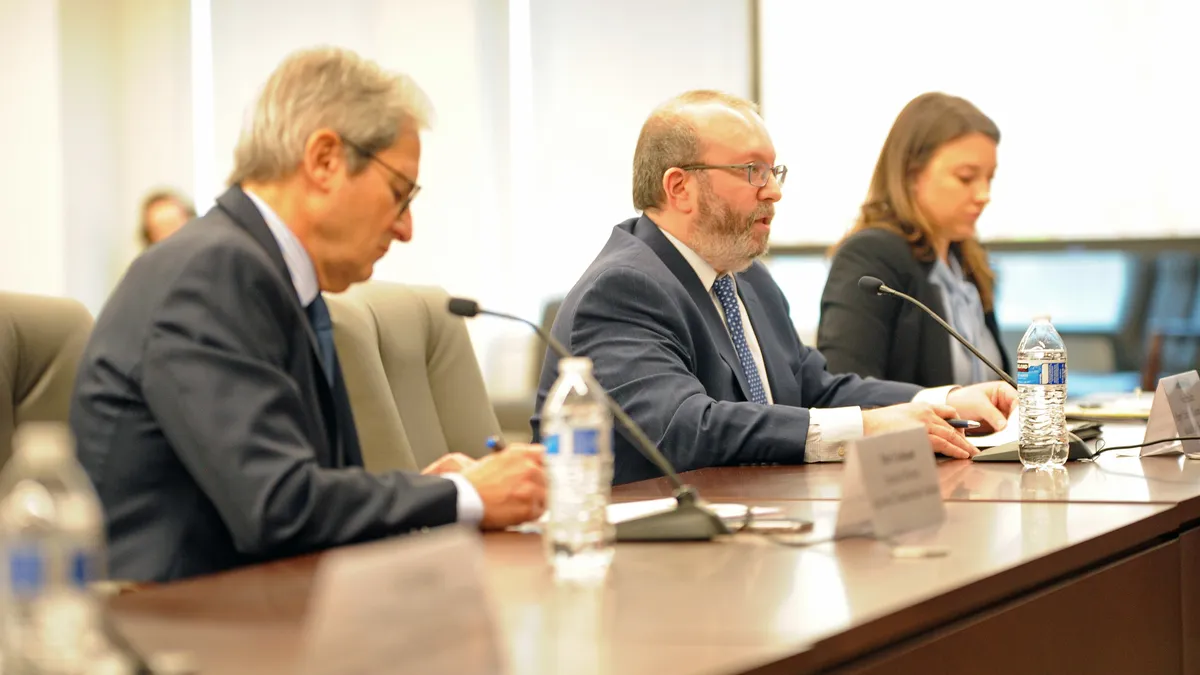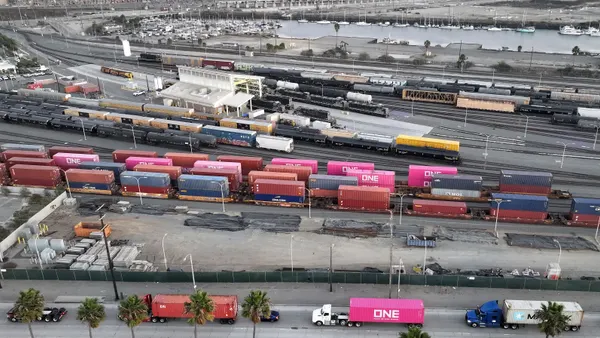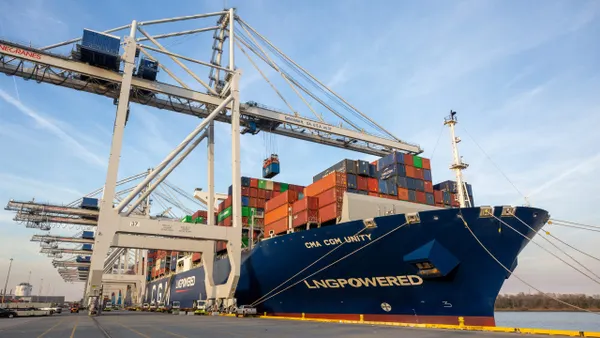Ocean shipping stakeholders asked the Federal Maritime Commission to use its jurisdiction to prevent further disruptions from the Red Sea crisis during an informal hearing with the agency on Wednesday.
Cargo owners have seen a host of disruptions as ocean liners avoid the Red Sea due to fears of ongoing attacks on commercial shipping vessels. The disruptions have sparked a wave of business and federal activity on the matter as regulators assess what they can do. Just last week, the House of Representatives’ Coast Guard and Maritime Transportation subcommittee held a hearing to evaluate the emerging challenges posed by the attacks.
"Our job when it comes to Red Sea trade route disruptions, and to my mind, the purpose of this hearing is to ensure that our shipping laws are being obeyed," FMC Chairman Daniel Maffei said during his opening remarks at the hearing. "Specifically, to make sure any Red Sea related fees charged to shippers are reasonable and not deceptive, and that no unfair or unjust discriminatory methods are used to apply tariffs and serve as contractors contracts, and that a competitive marketplace continues to exist."
Ocean rates are going up, are they valid?
The situation in the Red Sea has led shippers to not only reroute their cargo but face higher rates, leading trade groups to urge the FMC to take a closer look at price increases from carriers.
“The FMC should look at the transparency of these surcharges as questions still persist about their correlation with actual costs and their emergency surcharges are reaching over $3,000 per container coupled with other fees," Sarah Gilmore, director of supply chain policy at the Retail Industry Leaders Association, said during the hearing.
Asia to U.S. West Coast prices have increased to $4,367 per forty-foot equivalent and Asia to U.S. East Coast prices increased to $6,373 per forty-foot equivalent, according to Feb. 7 data from Freightos.
Global ocean rates skyrocket since Red Sea crisis
In addition, several carriers have tacked on "war surcharges" for goods on certain shipping lanes. Early in the crisis, CMA CGM, Maersk, Wan Hai Lines and other carriers asked the FMC for approval to waive the 30-day notice to apply surcharges — part of the agency's requirements. The FMC granted permissions on these surcharges.
Peter Friedmann, executive director at the Agriculture Transportation Coalition, urged the FMC to consider how shippers are affected when carriers are allowed to implement surcharges on short notice.
"When you get a notice like that, there were a lot of soybean exporters [who] just said stop, because we're going to take a loss on this thing," Friedmann said. "You can fix that, I think pretty easily.”
If cargo flow hasn’t stopped, are West Coast volumes an issue?
In addition to rates, shippers also worry conditions will get worse and believe congestion will begin in the next four to five weeks, Jonathan Gold, the National Retail Federation’s VP of supply chain and customs policy, told the FMC.
"We need to make sure we address railcar chassis and terminal equipment availability in order to move containers out of the terminals in a timely manner," Gold said. "We also need to continue to talk about the impact of the PierPASS program on available appointments and container movements at the ports of LA and Long Beach."

However, executives from the Port of Long Beach and the World Shipping Council highlighted that cargo is still flowing despite the Red Sea crisis.
Carriers are adjusting their service schedules and making operations adjustments such as the reposition of services from feeder services, to transshipment points, and other nuances, said Joe Kramek, director of U.S. Government Relations at the World Shipping Council.
"If commerce is flowing, that should be the Commission's first and foremost concern. But we're essentially operating in a war zone," Kramek said.
Similarly, Port of Long Beach CEO Mario Cordero said the port is prepared to keep cargo flowing if an increase in cargo arises.
"Following the surge of cargo to the West Coast ports during the covid-19 pandemic, we have had the opportunity to incorporate lessons learned and become more resilient as a port complex, especially when it comes to unexpected and steep increases in cargo volumes," Cordero said.
After hearing the stakeholders' concerns, Maffei thanked them for sharing and acknowledged this will likely not be the last unfortunate reality in international shipping.
"In a dynamic and ever changing global landscape, I just want to say that the good news is that all facets of our industry have and will continue, I believe, to adapt and grow,” he said.
This story was updated to include images of the FMC hearing.















